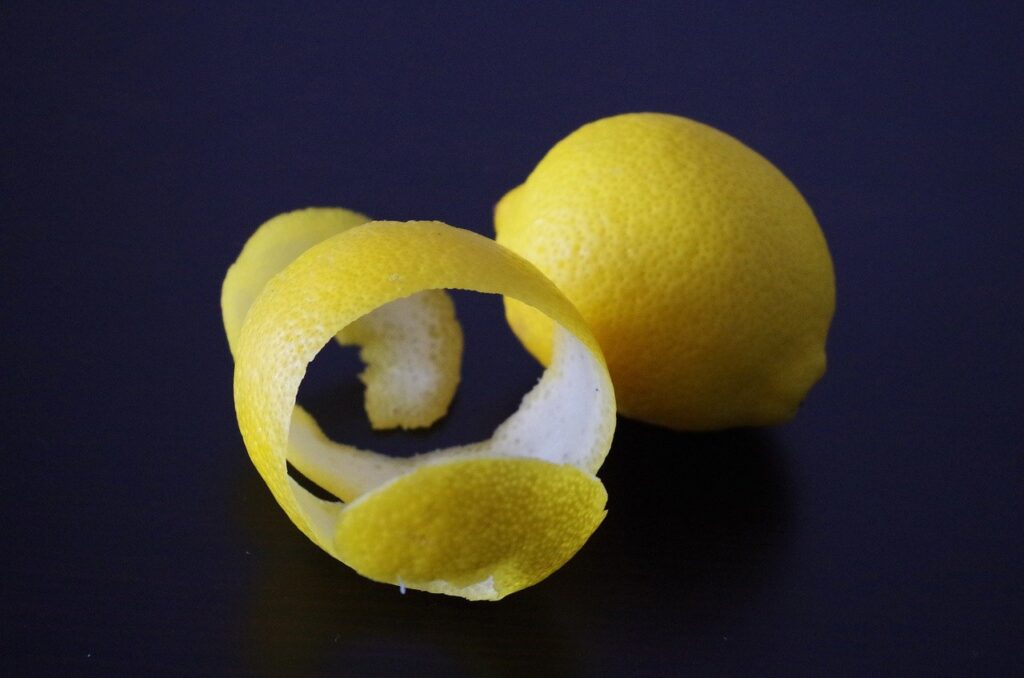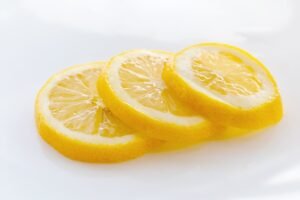9 ways to take advantage of lemon peels

The fate of lemon peels is not garbage. They can be very useful in the kitchen and at home. Learn to get all the juice out of them!
When the market we do not usually see them as a “profitable whole”. We use them to squeeze their juice and the peel is ruthlessly thrown away. The case of lemon is not isolated, there are many foods from which we can get uses beyond the simply culinary ones. We show you ways to use lemon peel for cooking, cleaning and more.
HOW TO GET THE MOST OUT OF THE LEMON PEEL
Instead of throwing away the lemons after you’ve squeezed them, you can save the halves, peel them or grate the peel and save it for later use.

1. LEMON ZEST FOR COOKING AND BAKING
Fresh or dried lemon peel is often used in cakes or other desserts (such as these cakes or jams ). The prerequisite for safe consumption is that the skin is made from untreated organic fruit.
The peel can also be dried and stored in coarse pieces , which we will use in a similar way to bay leaves, adding them to what you are cooking and removing them before serving.
Depending on the type of drying (in the automatic dehydrator, oven or in the air), the drying time for larger pieces of shell is a few hours or even days. The grated peel dries faster. The pieces of skin are completely dry when they are very light and brittle.
2. INFUSION OF LEMON PEEL
A few drops of lemon juice or a whole slice are often added to tea to give it a better flavor, however the skin is the most aromatic part of the whole fruit. You can add it in the process of preparing the infusion and remove it to the serving.
You can also prepare an infusion exclusively with lemon peel. Pour in hot water and let it steep for a fruity lemon infusion. Citrus peels are also suitable for homemade infusion mixes for children.
The iced tea with lemon flavor is particularly popular. Simply season a glass of chilled black tea with a tablespoon or two of dried lemon peel: let it chill in the fridge for at least an hour, sweeten to taste, and voila!
3. CITRUS OIL FOR MARINATING
Flavored oils for marinating and seasoning are, for all who know them, an indispensable part of the kitchen. Try to make a fruity lemon oil yourself, all you need is the lemon peel and extra virgin olive oil. Leave the peel in the oil bottle until it runs out.
4. OATMEAL MASK WITH LEMON PEEL
Vitamin C is not only important for nutrition. When applied externally, it also has a positive effect on the skin. This antioxidant vitamin slows down aging, acts against impurities and naturally brightens pigment spots.
You can take advantage of vitamin C for your skin in the form of a lemon and oatmeal mask. For this you will need:
Ingredients:
- 1 spoon lemon peel, dried and finely crushed
- 2 tablespoons oatmeal
- 2-3 tablespoons of water
Elaboration:
- Grind or crush the oat flakes and mix them with the powdered lemon zest.
- Mix with enough water to make a creamy paste.
- Apply evenly to clean face and décolleté with fingers or a brush, avoiding the mouth and eye area. Let it act for 10 to 15 minutes.
- Remove with a warm, damp cloth.
The mask can also be mixed with half a teaspoon of lemon juice and a few drops of lavender essential oil. In this way it will have a particularly calming and anti-inflammatory effect on the skin.
5. LEMON PEEL TO CLEAN
Citric acid is a powerful lime remover , which can also be used for cleaning. To get your kitchen and bathroom faucets stain-free again, you don’t need anything more than a lemon half already squeezed. Clean the lime stains with the inside of the lemon, rinse with a little water and you will see how the taps will shine like new again.
6. MULTIPURPOSE CLEANER WITH LEMON PEELS
lemon peels will also do the trick. Collect lemon peels and once you have enough peels, place them in a jar and cover them with cleaning vinegar. After two to three weeks of soaking, you will have a cleanser that smells pleasantly fresh and lemony. It contains a large amount of lemon essential oil from the peel, which not only effectively dissolves lime, but also works excellently against grease stains.
7. DISHWASHER DEODORANT MADE WITH LEMON PEELS
To avoid unpleasant odors in the dishwasher, synthetic fragrances are often used. It is much easier and just as effective if you use lemon peel as a dishwasher deodorant. Simply place a squeezed lemon half or two in the silverware basket before the next wash cycle.
Lemons give off a nice fresh aroma in the dishwasher, and the citric acid softens the water. Depending on the degree of hardness of the water, you can totally or partially replace the rinse aid.
8. LEMON PEEL AGAINST BAD SMELLS
Lemon peels are not only effective against bad smells in the dishwasher. Placed on the stove in winter they give off a pleasant citrus scent throughout the room.
Rubbing your fingers with squeezed lemon halves when washing your hands will help eliminate lingering odors. You can also put squeezed lemon halves in smelly athletic shoes. You will see what a surprise.
9. LEMON PEELS AGAINST ANTS AND SNAILS
Lemon peels are also useful in the garden. Place the pressed halves between the plants as a snail trap, for example. The snails are attracted by the smell and get under the shells. So you can collect them at once and remove them from your plants without harming the animals.
A simple piece of lemon peel is a border that busy ants do not cross because they avoid their strong smell that disorients them. Now you can scare away the ants without poison!







